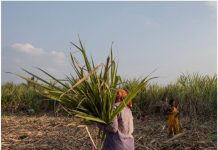A Defining Moment for Cooperative India : The announcement of the National Cooperative Policy 2025 by the Ministry of Cooperation, Government of India, comes at a time when India’s cooperative sector stands at a critical juncture. With a vision to empower 50 crore citizens and triple the cooperative contribution to GDP, this policy presents a monumental opportunity to redefine, revitalize, and future-proof India’s cooperative movement across all sectors.
Among these, the cooperative sugar sector, which has played a pivotal role in transforming the socio-economic landscape of rural India, especially in Maharashtra, Karnataka, and Uttar Pradesh, now stands both as a proud pillar and a vulnerable entity. The rise of the private sector, policy bottlenecks, financial distress, and technological stagnation have collectively put the sector under immense pressure.
As the second largest agro-based industry in India after textiles and a direct supporter of over 5 crore rural livelihoods, the sustainability of the cooperative sugar industry is not merely a sectoral concern, but a national rural development priority.
Strategic Pillars of the National Cooperative Policy 2025 & Their Relevance to the Sugar Sector
The Policy is built on six strategic pillars –
a) Strengthening the Foundation
b) Promoting Vibrancy
c) Making Cooperation Future-Ready
d) Promoting Inclusivity and Deepening Reach
e) Entering New and Emerging Sectors
f) Shaping a New Generation of Cooperative Leaders
Let us explore these in context of the Cooperative Sugar Sector and identify specific expectations and actionable strategies:
1. Strengthening the Foundation –
Current Challenge: Weak financial position of many sugar cooperatives due to debt overhang, outdated technology, and unsustainable operations. Poor governance and lack of professional management practices.
Policy Expectation & Action Steps
a) Establish Cooperative Sugar Sector Stabilization Fund to support financially distressed units with conditional restructuring packages.
b)Mandate professional CEOs with tenure-based performance review and training through National Cooperative University or VSI.
c) Enforce governance reforms under new Model Bye-Laws and align with the Cooperative Societies (Amendment) Act, 2023.
2. Promoting Vibrancy –
a) Current Challenge : Declining farmer participation due to delayed payments and low returns.
b) Shrinking membership and apathy among youth.
Policy Expectation & Action Steps:
a) Create Incentive-Based Ranking System for sugar cooperatives based on financial health, farmer services, digitalisation, and governance.
b)Promote multi-purpose cooperative models—integrating input supply, credit, extension, processing, and marketing.
c) Promote real-time digital cane payments via DBT and real-time recovery-based cane pricing.
3. Making Cooperation Future-Ready –
Current Challenge :
a)Technological lag in automation, distillery integration, energy efficiency, AI-driven farming.
b) Dependence on sugar as primary revenue; not aligned with green fuel economy.
Policy Expectation & Action Steps:
a) Special CapEx soft loans (3% interest) for technology upgradation, AI-based cane management, drone spraying, ERP systems.
b) Promote multi-feed ethanol distilleries, CBG plants, power cogeneration, and green hydrogen under cooperative ownership.
c) Enable sugar cooperatives to be partners in Sustainable Aviation Fuel (SAF) and biofuel ecosystems.
4. Promoting Inclusivity and Deepening Reach –
Current Challenge :
a) Gender imbalance, weak representation of women, SC/ST farmers in decision-making.
b) Lack of support for small & marginal growers.
Policy Expectation & Action Steps:
a) Mandate increase in % of women representation in cooperative boards as part of ESG-linked financing.
b) Launch Mini Co-operative Clusters at taluka level for small/marginal cane growers.
c) Offer digital onboarding and KYC-linked services for cane registration, inputs, and credit.
5. Entering New and Emerging Sectors –
Current Challenge:
a) Limited diversification into non-sugar sectors like agro-processing, warehousing, tourism, health care, and education.
Policy Expectation & Action Steps:
a) Provide 50% CapEx subsidy for sugar cooperatives entering into rural health, skill centres, agro-tourism, bioplastics, etc.
b) Promote Co-op Tech Startups Incubators in partnership with IITs, NABARD, and NCDC.
6. Shaping New Generation of Cooperative Growth –
Current Challenge: Ageing leadership and weak connection with Gen-Z and educated rural youth.
Policy Expectation & Action Steps:
a) Introduce “Young Cooperative Leader Fellowship” to groom next-gen cooperative professionals.
b) Offer dual-degree courses in Cooperative Governance + Agri Business Management under collaboration with NAARM, IIMs, and VSI.
c) Promote youth internship programs within sugar factories and cooperative distilleries.
Key Immediate Interventions Needed under National Cooperative Policy 2025
I) Policy Mandate to Stop Arbitrary Sale/Conversion of Cooperative Sugar Units to Pvt Entities – with a cooperative revival mechanism before liquidation.
II) Sugar Pricing Reforms – Introduce Dual Sugar Pricing Policy with industrial vs domestic pricing linked to sustainability.
III) Policy formation for consolidated farming – To enhance the productivity of the land under sugarcane cultivation, introduce Consolidated Farming at village to make it convenient to introduce modern methods of farming, Drip Irrigation, for sustainability of all the stakeholders by providing required facilities.
IV) Providing Priority Sector Sector status – Being the second largest industry after Textiles, introduces a policy of inclusion of the Sugar Industry into the category of Priority Sector Industry.
V) Dedicated Cooperative Sugar Development Mission – with Centre-State-NCDC funding, governance reform packages, and technology support.
VI) Farmer Empowerment Programs – On-farm productivity training, water conservation, varietal shifts (early, high-yield, climate-resilient).
VII) Credit & Finance Reform – Simplified long-term loans through NABARD, MSC Bank, and NCDC with 3-year moratorium for diversification projects.
A New Dawn for Cooperative Sugar Sector – The National Cooperative Policy 2025 is not merely a policy document; it is an instrument of socio-economic transformation. For the cooperative sugar sector, it offers a chance for reinvention, to transform from a mono-functional, sugar-centric model to a multi-functional, innovation-driven cooperative enterprise. By aligning the sector’s legacy of rural transformation with contemporary models of economic viability, India can ensure that cooperative sugar mills not only survive—but thrive—as the backbone of rural Bharat in Amrit Kaal.
P.G. Medhe is the former Managing Director of Shri Chhatrapati Rajaram Sahakari Sakhar Karkhana Ltd and sugar industry analyst. He can be contacted at +91 9822329898.


















